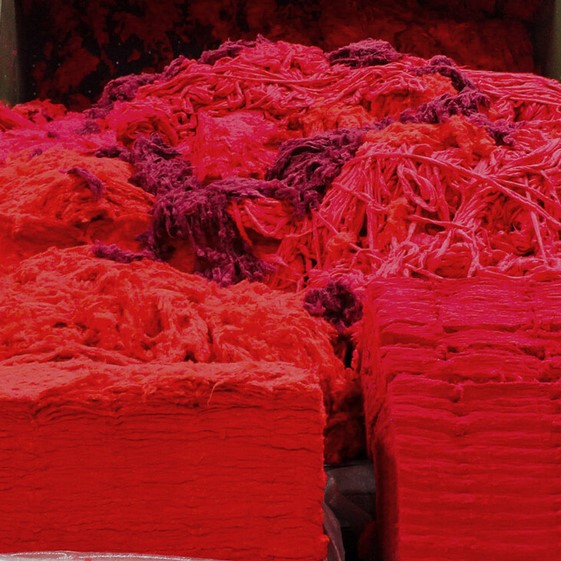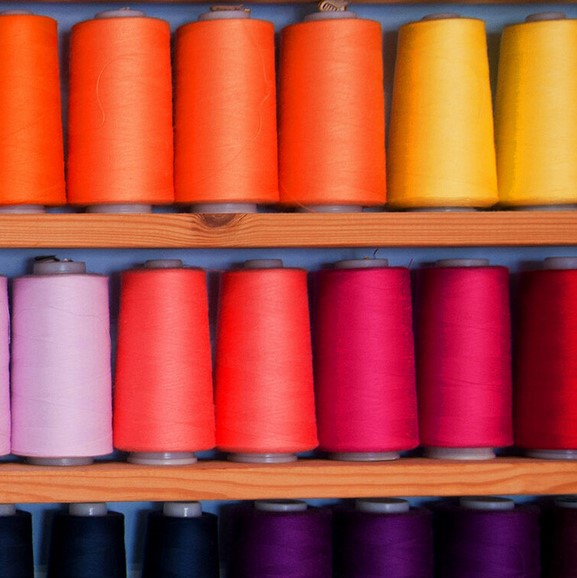Chemicals and colourants: Towards a resource efficient future
16 22
September 2027
Messegelaende HannoverGermany
 Photo credit: Accelerating Circularity
Photo credit: Accelerating Circularity
Building on the success of our work in researching, mapping, modelling and linking circular textile-to-textile systems, Accelerating Circularity is now moving into the trial phase in the USA.
We are involving the entire circular textile system, because no one company can make the changes required to develop a fully functioning textile-to-textile circular system. Having all the participants in the circular textile-to-textile system involved is critical to our work, and as Alice Hartley, director of product sustainability and circularity at Gap has remarked, everything has to happen at the same time. It’s all about inputs and outputs and how they need to all link up.
In January this year, the Walmart Foundation contributed US$1.2 million towards ensuring the trials happened. We have had great support from the actors in the circular system, from major brands and retailers to the recyclers through the collectors/sorters. We’re ready to demonstrate commercially viable circular products through the trials will include mechanically and chemically recycling cotton, polyester and cotton/poly blends from post-consumer and post-industrial feedstocks sourced from non-profit and for-profit collectors. Products identified include denim, woven bottoms, t-shirts, towels and fleece.
Participating in the US trials are:
• Feedstock suppliers – CirTex, Give Back Box, Goodwill Industries, Martex and Wearable Collections
• Recyclers – Ambercycle, Eastman, Giotex, Lenzing, Recover and Unifi
• Fabric and yarn mills – 1888 Mills, Cone Mills, Contempora Fabrics, Milliken and Parkdale Mills
• Albany Engineered Composites
• Retail brands – Gap, Kontoor and VF Corporation
The goal of the trials is to pressure test the ability to run commercially acceptable product through a circular system. The products will have to meet minimum order quantities, performance specifications and aesthetic considerations. Data will be collected throughout the process to evaluate environmental, economic and social impacts.

The trials will look not only at products but the processes and linkages within the system. We have identified easy-to-see gaps in the circular system such as sorting for textile-to-textile recycling which is in its infancy. We need better tools for identifying fibre contents for post-consumer materials.
Brands and manufacturers will also have to think about how to develop products that can go back into a circular system. We hope to identify any unknow gaps, work at solving those we have identified, and create new linkages.
Fostering change is never easy and it takes a willingness to work in new collaborative ways. It must be about sharing knowledge and expertise, and there’s a lot we can share while still maintaining IP. Successful circular systems will take the industry far in meeting its commitments on incorporating recycled materials and reducing greenhouse gas emissions (GHG).
Successful projects will be those that can be repeated and scaled to maximise their impact. We will leverage, where we can, the work done in the USA to help expedite the process in a European project launched this year.
Founding members of Accelerating Circularity Europe project include DuPont Biomaterials, the European Outdoor Group, GIZ, Gr3n, Inditex, Lenzing, Recover, Recyclatex Group, Reverse Resources, Texaid, Zalando and WWF.

Karla Magruder, Founder, Accelerating Circularity
About Accelerating Circularity
As a collaborative non-profit industry organisation, Accelerating Circularity was founded in 2019 with a mission to accelerate the textile industry’s move from linear to circular production routes by establishing systems that will use the embedded value and resources in existing textiles for new products.
Subscribe to our mailing list and stay up-to-date with news and developments in ITMA and the textile and garment industry.